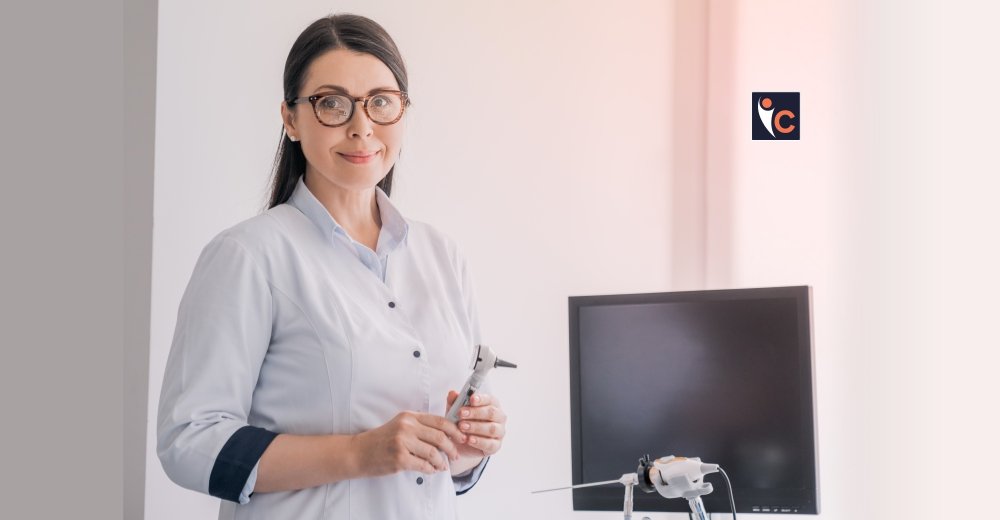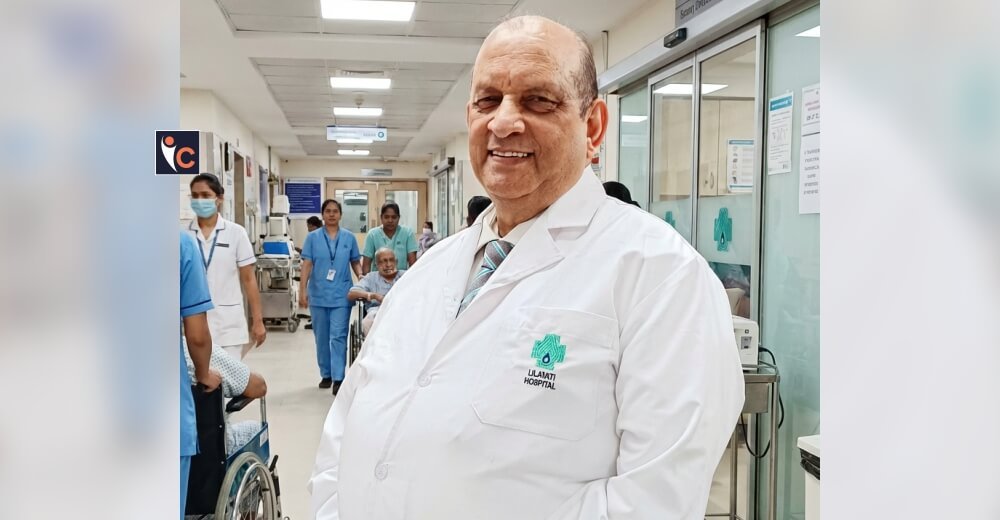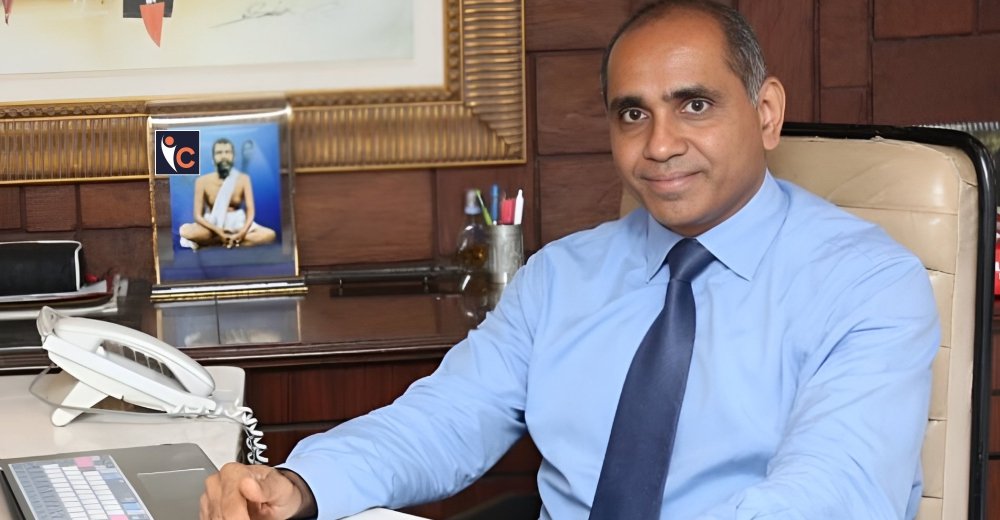In the face of life’s most heart-wrenching moments, there’s nothing more painful than saying goodbye to a loved one. For families clinging to hope during critical times, every second matters, and every action can mean the difference between despair and a miracle.
At the heart of these stories of hope is Dr. R Kishore Kumar, a beacon of compassion and innovation in healthcare. With an undying commitment to saving lives, he has dedicated his career to transforming outcomes for patients and families alike. From pioneering neonatal care to creating holistic healthcare systems, his work goes beyond the confines of traditional medicine, offering not just treatments but renewed chances at life.
Through his visionary leadership, countless lives have been saved, and families spared the unbearable pain of farewell. Dr. R Kishore Kumar’s mission is not merely about addressing illness but about restoring hope, ensuring that goodbye is not the end of the story, but the beginning of healing and resilience.
Let’s dive into Dr. Kumar’s inspiring story of pioneering neonatal care and delivering unparalleled outcomes for mothers and babies!
A Life of Selfless Service and Dedication
Dr. R Kishore Kumar grew up in a small town called Kollegal, located about 100 kilometers from Bangalore. He had a fulfilling childhood, with his parents and grandparents instilling in him the value of service to humanity. After moving to Bangalore, he studied for two years at Ramkrishna Vidyarthi Mandiram, where he was deeply influenced by the teachings of Swami Vivekananda and the Bhagavad Gita. The core principle he follows in life is the idea of performing one’s duties without expecting rewards. He believes that rewards naturally come when you do your job with dedication, and he views them not as personal accolades but as recognition for the service he provides, helping others learn about the work being done.
Dr. R Kishore Kumar’s personal philosophy revolves around the idea of selfless service. He emphasizes that rewards are not for self-glory, but rather to make others aware of the work being done. As his professor Dr Nirmala Kesaree from Davanagere used to say, rewards are not given because one deserves them, but to acknowledge the value of the work being carried out.
Transforming Maternal and Neonatal Care
His journey to revolutionize maternal and neonatal care in India was driven by a profound realization: childbirth, a natural and joyous event, often turned tragic due to preventable maternal deaths. His belief that pregnancy represents wellness—where healthy women embark on the journey to build families—fueled his vision to eliminate maternal mortality and improve neonatal outcomes in India.
Having witnessed the stark contrast in maternal care between India and the West, where maternal deaths during childbirth were virtually unheard of, Dr. R Kishore Kumar envisioned a specialized mother-and-baby hospital offering world-class care. In 2006, he turned this vision into reality with the launch of Cloudnine’s flagship center in Jayanagar, Bangalore. The hospital quickly became synonymous with excellence, gaining recognition for its high-quality care and innovative practices. Within three years, hospital’s success became a case study at the Indian Institute of Management, Bangalore, and the Cleveland University of Ohio in the USA.
However, establishing Cloudnine was not without challenges. Financial hurdles loomed large, as building a world-class facility required ₹20 crores, far beyond the ₹3 crores Dr. R Kishore Kumar could raise personally. With the support of angel investors, family, and friends, the first unit was established. Beyond finances, upgrading the standard of medical and nursing care posed significant difficulties. While nurses adapted to rigorous on-site training within three months, reorienting obstetricians to embrace data-driven, patient-centric practices required nearly nine months of persistent efforts. Weekly review meetings, aimed at improving outcomes without assigning blame, gradually built a culture of continuous improvement.
Cloudnine also sought to address issues that were often overlooked. For instance, 25% of women experienced pelvic floor damage during childbirth—a statistic previously unacknowledged in India. Many women silently endured incontinence and other complications due to social stigma. Similarly, low breastfeeding success rates, with only 45–55% of mothers nursing successfully, highlighted the need for better support systems. Dr. R Kishore Kumar’s team focused on empowering women by providing education and accessible support, ensuring no mother suffered in silence.
Today, Cloudnine stands as a testament to his determination, offering international standards of care across 37 branches in 13 cities. It has redefined maternal and neonatal care in India, proving that compassionate, high-quality healthcare can transform lives and set new global benchmarks.
Global Excellence in Maternal Care
Dr. R Kishore Kumar’s journey in medicine began in 1989 when he qualified as a pediatrician in India, driven by an unwavering passion for saving newborns. Early in his career, he worked at the mission hospital in Mysore, where he successfully saved a premature baby weighing just 780 grams—a record at the time. The case made national headlines, yet Dr. Kumar remained humble, questioning whether the baby’s survival was due to his efforts or other factors. This introspection fueled his desire to specialize further in neonatology, a nascent field in India at the time.
To pursue this goal, Dr. R Kishore Kumar went to the UK, where he trained extensively for four years, mastering the intricacies of neonatal care. His journey continued to Australia in the early 1995, where hospitals were already saving babies born as early as 24 to 28 weeks. At institutions like Monash Medical Center and Royal Children’s Hospital in Melbourne, he honed his expertise in caring for premature infants. He further enriched his experience by working in the U.S. and dedicating 14 years to neonatal care in Australia.
Despite his success abroad, Dr. R Kishore Kumar was deeply inspired by the pressing need to improve maternal and neonatal care in India. In 2006, he founded Cloudnine with a mission to transform outcomes for mothers and newborns. At the time, India faced staggering statistics—97 maternal deaths per 100,000 deliveries and limited survival rates for babies born before 28 weeks. He envisioned a healthcare system that could reduce maternal mortality and save premature infants with the same precision as the best hospitals in the West.
Under his leadership as a Chairman & Director (though initially he dorned the caps of CEO, MD & Neonatologist too), Cloudnine has achieved remarkable milestones over the past 17 years. With over 250,000 deliveries to date, the hospital chain boasts a maternal mortality rate of just four deaths per 100,000 deliveries, among the lowest globally—even outperforming Western nations. Additionally, Cloudnine has become a leader in neonatal care, offering survival rates for babies born under 28 weeks that rival the top hospitals worldwide.
The hospital is also the only healthcare chain in Asia affiliated with the prestigious Vermont Oxford Network, an international organization that benchmarks neonatal care outcomes. By voluntarily participating in this database, Cloudnine has consistently demonstrated outcomes superior to many European countries, cementing its position as a global leader in maternal and neonatal healthcare.
Dr. R Kishore Kumar’s visionary leadership has not only redefined maternal and neonatal care in India but also set new global benchmarks, ensuring that countless lives are saved and transformed.
Journey to Hyper Wellness
From its inception, Cloudnine sought to redefine maternal and neonatal care, going beyond traditional approaches to ensure a comprehensive and supportive experience for mothers. One of the key innovations was the integration of physiotherapy and lactation consultants from day one. These specialists played a critical role in antenatal education, preparing mothers for pregnancy and childbirth, and offering postnatal care to address recovery and breastfeeding challenges.
This holistic approach yielded remarkable results: no recorded cases of pelvic floor damage among Cloudnine mothers over 17 years and an impressive 95% breastfeeding success rate. However, achieving these milestones required overcoming skepticism. Initially, insurance agencies and patients viewed these services as unnecessary expenses. Persistent advocacy and data-backed outcomes eventually convinced stakeholders of their immense value, making these practices a cornerstone of Cloudnine’s care model.
Another transformative practice was encouraging early mobilization. Traditionally, women stayed bedridden for days after delivery, increasing the risk of complications. Cloudnine introduced early movement—within four hours of delivery, whether via normal delivery or C-section—helping mothers recover faster. This change allowed patients to be discharged within 48 hours, a practice now seen as a benchmark in maternity care.
Cloudnine also prioritized infrastructure tailored to maternal wellness. Recognizing the unique challenges faced by pregnant women, the hospital introduced motorized outpatient beds, ensuring comfort and safety for expectant mothers. Innovations extended to room designs, with toilets at floor level to ease mobility post-delivery. The hospital ambiance was intentionally designed to resemble a welcoming hotel lobby rather than a clinical setting, eliminating the traditional “hospital feel” and reinforcing the concept of pregnancy as a state of wellness.
Dr. R Kishore Kumar emphasizes that these “minute details” have made a significant impact, transforming maternity care in India. Cloudnine’s patient-centered approach, supported by modern infrastructure and evidence-based practices, has not only elevated standards locally but also contributed globally by setting new benchmarks in maternal and neonatal care. “Hyper wellness” remains at the core of this revolutionary model, ensuring every mother’s journey is as safe, comfortable, and fulfilling as possible.
Transforming Neonatal Care
It’s truly remarkable how Cloudnine has evolved over the years, focusing on providing comprehensive, patient-centric care. From the integration of physiotherapy and lactation consultation to the innovative steps in newborn care like the mandatory screening, every change has been made with a focus on improving maternal and neonatal health.
Introducing newborn screening from the very start was a significant advancement. By detecting metabolic disorders and hypothyroidism early, Cloudnine has saved countless lives, preventing severe developmental issues and even death. The challenge of convincing both parents and medical professionals about the importance of these screenings was difficult initially, but Cloudnine’s persistence and educational efforts made a significant impact.
The patient-centric approach has also changed the perception of maternal care in India, where it’s become more than just about luxury but about providing essential, scientifically backed care. As you mentioned, early mobilization and creating a welcoming environment in the hospitals reflect the commitment to improving the patient experience at every level.
Moreover, Cloudnine’s implementation of technology in neonatal care, such as newborn hearing screening, has been groundbreaking. Being one of the first hospitals in India to offer this service shows a clear commitment to identifying issues early, ensuring timely interventions that improve outcomes. The fact that one of the children diagnosed with hearing loss went on to become a professional singer highlights the transformative effect of this approach.
These changes weren’t easy and required significant investment and effort, but it’s clear that Cloudnine’s dedication to quality care and patient well-being has led to life-changing results for many families.
Compassion in Crisis
Dr. R Kishore Kumar has been deeply involved in several initiatives to improve pediatric healthcare, particularly in rural and underserved areas. Over the years, he has led efforts such as conducting antenatal classes for rural pregnant women, training nurses as lactation consultants in government hospitals, and working with NICUs in Tier 1 and Tier 2 cities to provide advanced care, including Tele-NICU facilities. He has also trained local pediatricians in these regions on the latest technological advancements and international standards in neonatal care.
Dr. R Kishore Kumar emphasizes that neonatology, though not financially rewarding compared to fields like neurosurgery or cardiology, offers immense emotional satisfaction. Treating children, seeing them smile, and saving babies brings profound gratitude from families, making it incredibly fulfilling. He highlights the demanding nature of the profession, noting that it’s not for those who seek a typical work-life balance but for those committed to the 24/7 responsibility of caring for others.
He shares how his approach to work has been shaped by his wife’s compliments. Dr. R Kishore Kumar balances his professional and personal life by working whenever possible and being available for his family when needed. He focuses on enjoying his work and the flexibility to relax when necessary, ensuring that tasks are completed efficiently without delay.
During the COVID-19 pandemic, Dr. R Kishore Kumar’s leadership at Cloudnine Hospital Group was critical in maintaining patient care while ensuring the safety of staff. The pandemic, which created widespread fear among the predominantly interstate nursing staff, prompted Dr. R Kishore Kumar and the hospital management to offer reassurance and medical support. His efforts led to reduced attrition rates, with the hospital’s nursing staff demonstrating exceptional loyalty. Additionally, Cloudnine introduced remote services like home vaccination, teleconsultations, and a phone triage system to continue offering care while minimizing risk.
Dr. R Kishore Kumar’s Vision for Pediatric Healthcare
Looking ahead, Dr. R Kishore Kumar identifies emerging trends in pediatric healthcare, particularly in the areas of technology and artificial intelligence. He mentions the progression of newborn screening to genomic screening, which could soon become a routine test to identify genetic diseases at birth. He also highlights the importance of routine medical screenings, such as hearing and cardiac screening, in India’s healthcare system.
One of the key advancements Dr. R Kishore Kumar is championing at Cloudnine is the use of artificial intelligence. The hospital has piloted AI in neonatal intensive care units (NICUs), allowing for the early identification of septic babies within 12 hours, a process that traditionally takes 72 hours with blood cultures. Additionally, AI has been integrated into hospital’s electronic database, predicting the risk of premature labor in pregnant women with up to 80% accuracy, a significant improvement over the traditional 20% estimate.
Dr. R Kishore Kumar’s work continues to focus on research and innovation, ensuring that Cloudnine remains at the forefront of revolutionizing maternal and pediatric care.





